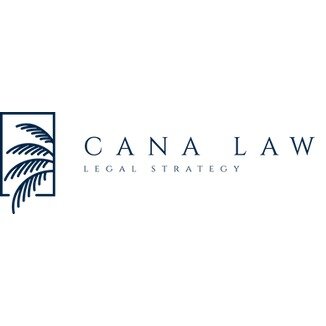Best Natural Resources Lawyers in Dominican Republic
Share your needs with us, get contacted by law firms.
Free. Takes 2 min.
Or refine your search by selecting a city:
List of the best lawyers in Dominican Republic
About Natural Resources Law in Dominican Republic
The Dominican Republic is endowed with a diverse array of natural resources, including mineral reserves, fertile land, and rich biodiversity. Natural resources law in the country encompasses regulations that govern the exploration, extraction, conservation, and management of these resources. This legal field addresses not only economic concerns but also environmental protection and sustainable development. The government implements these regulations through various legislations and policy frameworks designed to balance economic growth with conservation efforts.
Why You May Need a Lawyer
Several situations might necessitate the need for legal assistance in the domain of natural resources in the Dominican Republic. These include:
- Business Operations: Companies involved in mining, agriculture, or energy projects may require legal expertise to navigate environmental regulations and licensing processes.
- Land Use and Development: Landowners and developers may need advice on zoning laws and environmental impact assessments.
- Environmental Compliance: Businesses and individuals may face compliance issues or disputes related to waste management, water rights, and habitat protection.
- Dispute Resolution: Conflicts over land use, resource distribution, and environmental damages can benefit from legal mediation or representation.
- Policy Updates: Staying informed on regulatory changes and policy amendments is crucial for businesses and stakeholders in the natural resources sector.
Local Laws Overview
The legal framework governing natural resources in the Dominican Republic is comprehensive, involving numerous laws and regulations. Key aspects include:
- Environmental Law No. 64-00: This law provides guidelines for environmental management, including conservation of biodiversity and natural habitats.
- Mining Law No. 146-71: It regulates mineral exploration and extraction, outlining rights and responsibilities of mining operations.
- Land Use and Planning Law: This framework manages zoning, land development permits, and agricultural activities.
- Water Law: Governs the use, distribution, and protection of water resources crucial for agriculture and industry.
- Biodiversity and Protected Areas Regulations: Protections for critical ecosystems, wildlife, and natural sanctuaries.
Frequently Asked Questions
What permits are necessary for starting a mining operation?
A mining concession is required, along with an environmental impact assessment and approval from relevant governmental bodies.
Can foreign nationals own land for natural resource exploitation?
Yes, foreign nationals can own land, but there are regulations and restrictions on land use that must be adhered to.
What is the process for resolving disputes over land ownership?
Disputes are usually resolved through negotiation, mediation, or, if necessary, legal proceedings in court.
How does the Environmental Law impact businesses?
Businesses must comply with environmental regulations, which may involve obtaining permits, conducting assessments, and adhering to waste management protocols.
Are there specific laws governing forest conservation?
Yes, forest areas are protected under various laws that regulate activities such as logging and land conversion.
What role does the government play in managing natural resources?
The government implements and enforces laws, issues permits and licenses, and monitors compliance through agencies like the Ministry of Environment and Natural Resources.
How are water rights determined for agricultural use?
Water rights are regulated by the Water Law, which assigns usage based on availability, need, and sustainability criteria.
Is community consultation necessary for large development projects?
Yes, community consultation is often required to ensure that local populations are informed and their concerns addressed, as part of the environmental impact assessments.
Are there penalties for non-compliance with environmental regulations?
Yes, penalties can include fines, suspension of operations, and legal action for serious offenses.
Where can I find more information about natural resources regulations?
Information can be obtained from government websites, legal firms specializing in natural resources, and environmental organizations.
Additional Resources
To gain deeper insights or assistance regarding natural resources, consider reaching out to the following resources:
- Ministry of Environment and Natural Resources: The primary government body managing environmental regulations and resource conservation.
- National Council of Free Zones: Offers information on investment and regulatory frameworks.
- Local Environmental NGOs: Organizations like Grupo Jaragua and Fundación Propagas provide insights into conservation efforts.
- Legal Firms: Specialized law firms can provide detailed legal advice and services.
Next Steps
If you require legal assistance concerning natural resources in the Dominican Republic, consider the following actions:
- Conduct preliminary research on your specific issue to understand the legal context.
- Contact a lawyer or legal firm that specializes in natural resources law to discuss your case.
- Prepare any relevant documents or information that may assist your lawyer in understanding your situation.
- Consider the long-term implications of any legal decisions for your business or personal interests.
- Stay informed about ongoing legislative changes in the natural resources sector.
Lawzana helps you find the best lawyers and law firms in Dominican Republic through a curated and pre-screened list of qualified legal professionals. Our platform offers rankings and detailed profiles of attorneys and law firms, allowing you to compare based on practice areas, including Natural Resources, experience, and client feedback.
Each profile includes a description of the firm's areas of practice, client reviews, team members and partners, year of establishment, spoken languages, office locations, contact information, social media presence, and any published articles or resources. Most firms on our platform speak English and are experienced in both local and international legal matters.
Get a quote from top-rated law firms in Dominican Republic — quickly, securely, and without unnecessary hassle.
Disclaimer:
The information provided on this page is for general informational purposes only and does not constitute legal advice. While we strive to ensure the accuracy and relevance of the content, legal information may change over time, and interpretations of the law can vary. You should always consult with a qualified legal professional for advice specific to your situation.
We disclaim all liability for actions taken or not taken based on the content of this page. If you believe any information is incorrect or outdated, please contact us, and we will review and update it where appropriate.
Browse natural resources law firms by city in Dominican Republic
Refine your search by selecting a city.
















